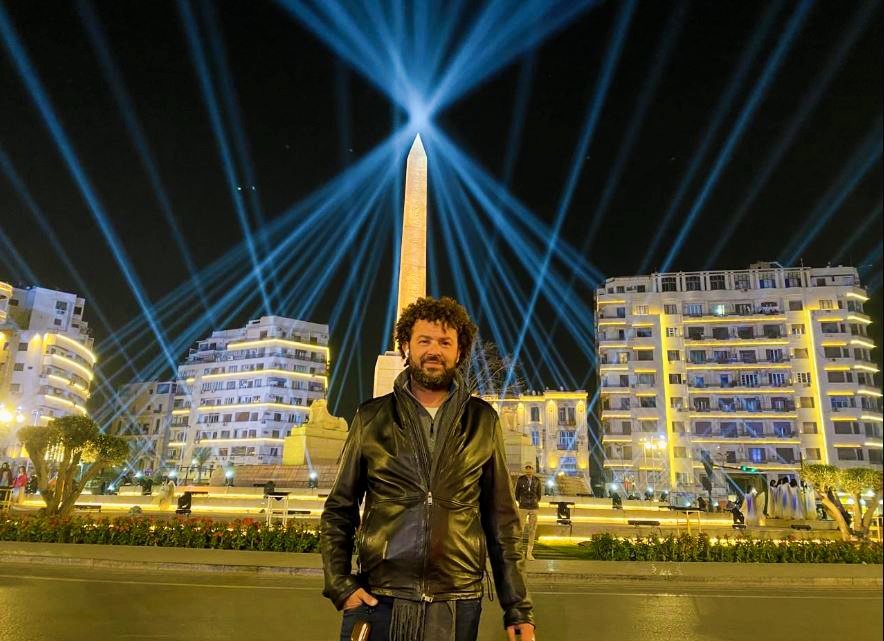First comment from Mazen the Wanderer after the controversy surrounding the Grand Egyptian Museum opening

After days of controversy surrounding the opening ceremony of the Grand Egyptian Museum, Egyptian director Mazen the Wanderer broke his silence to respond for the first time to the criticisms, confirming that differing opinions are natural in any artistic project of this magnitude.
The Wanderer stated in a phone interview with the program "The Image" hosted by journalist Lamis Al-Hadidi on Al-Nahar channel on Sunday evening:
"Any large artistic work must provoke a variety of opinions, and it is natural for some comments to arise, whether they are technical or organizational, but what is important is to focus on the successes that have been achieved."
He added:
"I always prefer to look at the bright side of things, and I respect everyone's point of view, as every project has aspects that can be improved."
The Wanderer emphasized that many elements of the ceremony were distinctive and succeeded in conveying the overall idea, explaining that the intricate details—from the decorations to the music and artistic performances—were not random, but were carefully designed to reflect specific philosophies and messages that become clearer upon re-watching the ceremony.
The director pointed out that organizing an event of this size requires tremendous collective effort, praising the prominent role played by Mohamed Al-Saadi, a board member of the United Media Services Company, who oversaw the ceremony and acted as the "maestro" coordinating all the intricate details.
The Wanderer confirmed that the opening ceremony was not just a media event, but an artistic and cultural message aimed at promoting Egyptian history and civilization globally, noting that the amount of work done behind the scenes was enormous and deserving of appreciation.
* Who is Mazen the Wanderer?
Mazen the Wanderer is considered one of the most prominent names in the field of directing and visual spectacle in Egypt.
He is a director, cinematographer, and lighting designer who graduated from the Higher Institute of Cinema in 2004, and he caught attention early on when he became the youngest cinematographer in Egypt at the age of twenty-three through his first feature film "The Seventh Sense."
The Wanderer has participated in the cinematography of several of the most successful and famous Egyptian films, including:
• Ni'ma Bay
• The String
• Captain Hima
• Auntie Rahiba
• Awlad Rizk in its three parts, for which he won the Best Cinematography Award
• The Cell, which is considered one of the most prominent action films in the history of Egyptian cinema
He has also collaborated with international agencies and major brands in the field of advertising, shooting works in several countries such as Spain, Italy, the United States, Brazil, Japan, England, and Russia.
In 2021, the name of the Wanderer gained global prominence when he directed and designed the lighting for the Royal Mummies Parade, an event that amazed the world and received widespread acclaim, solidifying his position as one of the most important Egyptian directors in the field of artistic direction and visual spectacle.
The Wanderer concluded his remarks by stating that "true success is not only measured by immediate reactions, but by the cultural and aesthetic impact the event leaves in the long term," emphasizing that the Grand Egyptian Museum is not just an archaeological building, but a message from Egypt to the world about the greatness of its civilization and the creativity of its people.
